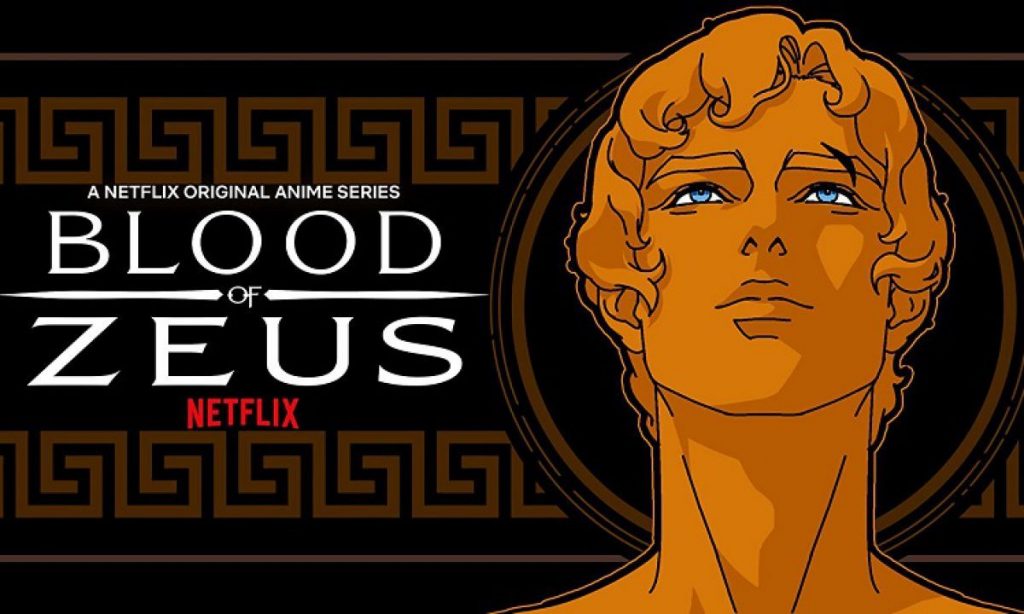Blood of Zeus uses a familiar conceit- that of greek mythology- and weaves its own narrative with it. The show introduces its story as a ‘lost’ oral story, which allows series creators Charley and Vlas Parlapanides (who also worked on 2011’s The Immortals) to put their own spin on familiar characters. While the story is fairly standard and the characters are nothing to write home about, the action scenes and choral soundtrack makes the series stand out. The show is also unapologetically brutal, with heads and lopped limbs and torsos flying everywhere.
Heron is thrust into danger as his village gets attacked by a group of demons led by a vengeful one-eyed man wielding a bident named Seraphim. He soon finds out that he has a divine destiny and he was fathered by the king of the gods, Zeus. On Olympus, Hera, Zeus’ wife, is angered and humiliated by Zeus committing adultery once again and schemes with Seraphim to restore the deadly giants and take Zeus’ throne. Heron meets up with two rogues and an Amazonian on his journey, and eventually he finds himself in the center of a titanic battle between the gods and the giants.
Austin-based Powerhouse uses a very Greek aesthetic inspired animation style where the characters look chiseled like statues. The gods are also reimagined in distinctive ways that are familiar yet unique from their standard depictions. The monsters are also creatively modeled, with their being one giant with two snakes protruding from either side and another female giantess who fires deadly beams from an opening in her throat.
Although Blood of Zeus has many good elements, it feels like it could have been so much more. Heron doesn’t have anything unique going for him, even down to his daddy issues and dead mother plotline. He doesn’t seem any different from other demigods born from Zeus such as Perseus and Heracles. Characters like Hermes, Apollo, Ares and Poseidon barely get speaking lines and are rendered in two-dimensional hues.
Some reviewers have already compared the conflict between the gods to Game of Thrones, but this series lacks the nuance you would expect from that kind of narrative.
Only Zeus, Hera and Seraphim have a decent amount of personality and discernible character arcs. Zeus and Hera’s plotline feels like a natural extension of Greek mythology: it’s a marital dispute writ across the heavens, and hell hath no fury like a woman scorned. The conflict between Heron and Seraphim is another critical component of the narrative, and although it is telegraphed at certain points, it does give meaningful stakes to the final battle between them.
At eight thirty-minute episodes, Blood of Zeus is paced well enough that it feels like a scaled down film. That makes the lack of character development feel a little more forgivable.
At best, the series feels like a corollary to the original God of War trilogy: violent, stylized and mostly geared toward adolescent males. If there is a season two, let’s hope the story evolves, like God of War did with its fourth installment. But maybe that is expecting too much from the show.
